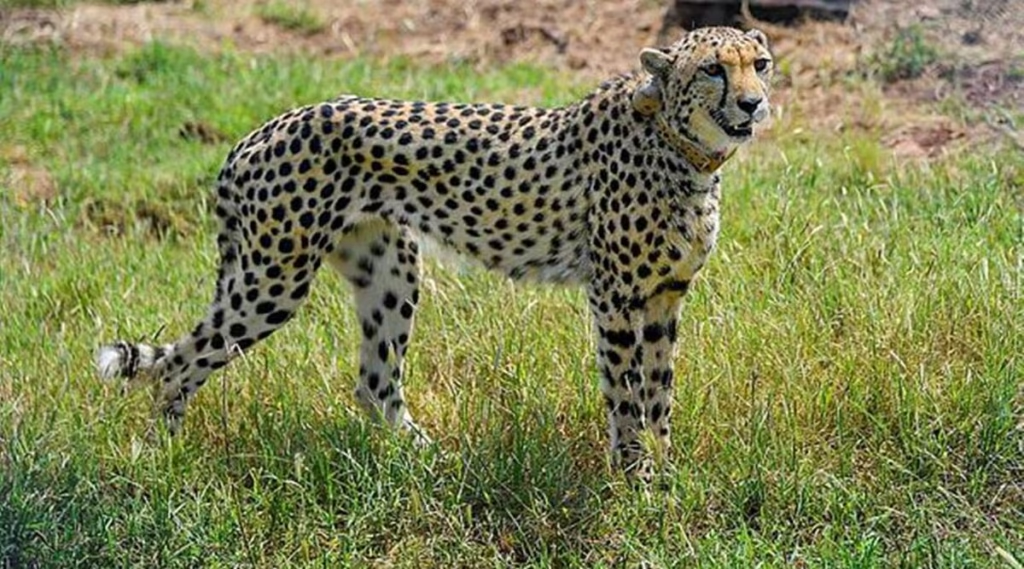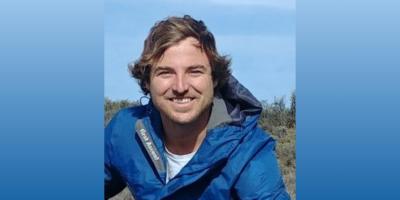Introduction
Vincent van der Merwe, a renowned South African conservationist instrumental in the success of India’s Project Cheetah, was found dead in his Riyadh apartment on March 16, 2025. The 42-year-old’s sudden demise has sent shockwaves through the global wildlife conservation community, leaving a void in ongoing efforts to preserve and reintroduce cheetah populations worldwide.
His work in cheetah conservation spanned over a decade, and he played a key role in ensuring the survival of these big cats in multiple regions, particularly in India and Africa. His dedication to reintroducing cheetahs into the wild and maintaining their genetic diversity through structured conservation programs has been widely acknowledged. His death comes at a time when his expertise was still crucial for the ongoing success of India’s ambitious Project Cheetah.
Discovery and Circumstances
Van der Merwe’s body was discovered in the hallway of his apartment building in Riyadh, Saudi Arabia, with a head injury. Reports suggest that CCTV footage captured him falling and striking his head on the floor. Local authorities ruled out foul play, initially classifying the incident as an accident. However, some of his family members and colleagues have questioned the official findings, demanding a more thorough investigation into the circumstances of his death.

The conservationist had been working in Saudi Arabia on a project related to captive cheetah breeding, an initiative designed to restore cheetah populations in controlled environments before reintroducing them into the wild. His untimely passing has left many unanswered questions and has raised concerns about the safety of conservationists working in foreign countries.
Legacy in Cheetah Conservation
Born in 1983 in South Africa, van der Merwe dedicated his life to wildlife conservation, focusing on cheetah preservation. As the director of The Metapopulation Initiative (TMI) and its Cheetah Metapopulation Project, he coordinated efforts to manage and expand cheetah populations across fragmented habitats. His expertise helped in implementing structured conservation practices, ensuring that the species thrived in different regions despite habitat loss and human encroachment.
His work was instrumental in the successful reintroduction of cheetahs to various reserves, enhancing genetic diversity and species survival. He worked closely with several conservation bodies, governments, and wildlife organizations, advocating for sustainable conservation strategies and emphasizing the need for large protected areas to accommodate these big cats.
His contributions extended beyond fieldwork, as he actively engaged in research, training, and awareness campaigns. He published several scientific papers on cheetah ecology, genetics, and conservation strategies, and frequently collaborated with international experts to share insights and develop policies for long-term wildlife protection.
Role in India’s Project Cheetah
Van der Merwe played a pivotal role in India’s Project Cheetah, an ambitious initiative aimed at reintroducing cheetahs into the Indian subcontinent after their local extinction over seven decades ago. In September 2022, eight African cheetahs from Namibia were translocated to Kuno National Park in Madhya Pradesh, marking the first-ever intercontinental wildlife translocation.
This project, implemented under the supervision of experts from Namibia, South Africa, and India, has met several short-term success criteria, including the establishment of home ranges and the birth of cubs in Kuno. Van der Merwe was among the key figures involved in monitoring the cheetahs post-relocation, providing crucial guidance on their adaptation to the Indian habitat.
His commitment to the project was unwavering, and he believed that India’s vast landscapes had the potential to support a stable cheetah population if managed properly. He frequently traveled to India for field visits, conducting studies and collaborating with Indian wildlife officials to ensure the program’s long-term success.
Colleagues Remember a Passionate Conservationist
Dr. Nejat Jimmy Seid, a veterinarian and species expert from Somaliland who worked with van der Merwe in Saudi Arabia, expressed profound grief over the loss. “Vincent was the cheetah’s best friend, and he was my best friend, too,” he said. “He will be missed by the many, many people whose lives he touched.”
Wildlife photographer Wiki West, who documented van der Merwe’s work in southern Africa, recalled his mentor’s zeal. “Vincent had a passion and zest for life unmatched by anyone I met. He burned the candle at both ends,” West remarked.
Many of his colleagues have echoed similar sentiments, describing him as an energetic, fearless, and highly knowledgeable conservationist who dedicated his life to a cause he deeply believed in. His ability to inspire others, mentor young conservationists, and rally global support for cheetah conservation will be remembered as part of his legacy.
Continued Commitment to Conservation
Despite the tragic loss, van der Merwe’s colleagues are determined to continue his work. “Vincent believed that India could be a world leader in conservation efforts for the cheetah. He staked his professional reputation on it,” said Susan Yannetti, director of strategy and fundraising for The Metapopulation Initiative. “This work with cheetahs is his legacy, and those who knew him shall continue it in his honor.”
The Metapopulation Initiative has announced that it will intensify its efforts in Africa and India to ensure that van der Merwe’s work is not left unfinished. Plans are already in place to expand conservation areas, improve cheetah tracking technology, and strengthen collaboration with governments to mitigate human-wildlife conflict.
Impact on Project Cheetah
Project Cheetah has faced challenges, including the deaths of some relocated cheetahs. However, the project has also seen successes, such as the birth of cubs in Kuno National Park. The initiative aims to establish a stable, breeding population of cheetahs in central India and use them as an umbrella species to restore open natural ecosystems.
Van der Merwe’s absence will be felt in the project’s future phases, as he played a crucial role in overseeing the cheetahs’ adaptation and advising on management strategies. Nonetheless, Indian authorities and international experts remain committed to achieving the long-term vision he had for the program.
Future Prospects
The Indian government remains committed to Project Cheetah, outlining plans to focus on interstate conservation across Madhya Pradesh and Rajasthan to achieve a metapopulation of 60-70 cheetahs in the future. This involves conserving the broader Kuno-Gandhi Sagar landscape, which is spread across protected areas and forest divisions in these states.
Experts believe that while van der Merwe’s passing is a great loss, his work has laid a strong foundation for future cheetah conservation efforts. There is a renewed determination among conservationists to carry forward his vision and build upon the successes he achieved.
Conclusion
Vincent van der Merwe’s death is a significant loss to the global conservation community. His dedication and contributions to cheetah conservation have left an indelible mark, inspiring ongoing efforts to protect and restore this majestic species. His legacy will live on through the projects he championed, the people he mentored, and the wild landscapes he helped preserve. The best tribute to his memory will be ensuring that his work continues and that the cheetah, a species he devoted his life to saving, thrives for generations to come.
US and UAE Lead in Remittances to India, Surpassing Expectations



